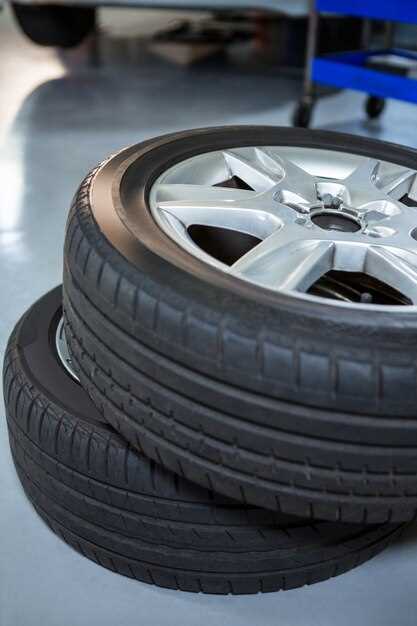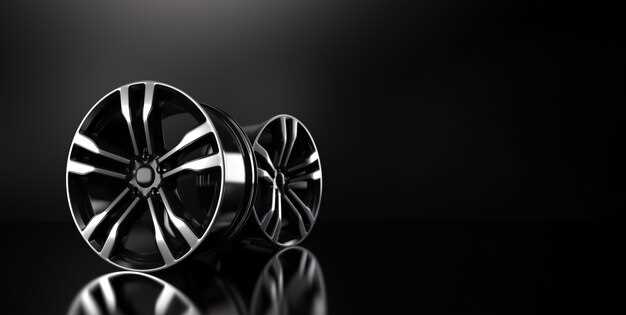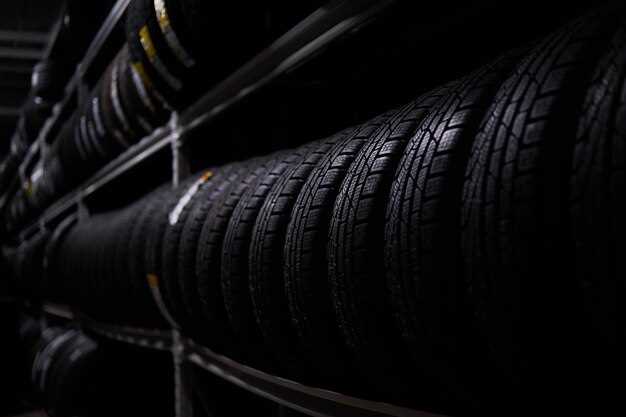
When it comes to enhancing the performance of exotic sports cars, the importance of high-quality tires cannot be overstated. The grip provided by a tire is crucial for maximizing speed, handling, and safety on the road and track. Choosing the right tire brand can significantly impact the driving experience, enabling drivers to unleash the full potential of their high-performance machines.
Exotic sports cars require tires that can withstand extreme conditions while delivering exceptional performance. Different tire brands offer unique technologies and compounds specifically designed to optimize grip and responsiveness. This article will explore the top tire brands renowned for their performance-oriented products, focusing on how they cater to the unique requirements of exotic sports cars.
From track days to everyday driving, understanding the features and benefits of each tire brand helps car enthusiasts make informed decisions. We will delve into the characteristics that set these brands apart, including their innovations in tread design and rubber compounds, to ensure that every corner taken feels confident and controlled.
Evaluating Performance Tire Specifications for Exotic Cars
When it comes to maximizing the performance of exotic sports cars, the choice of tires plays a crucial role. Performance tires are engineered with specific specifications that enhance grip, handling, and stability at high speeds. Understanding these specifications is essential for any enthusiast or driver looking to extract the best from their vehicle.
One of the primary considerations in tire selection is the rubber compound used in the tire’s construction. Softer compounds offer superior grip, which is vital for providing the necessary traction during acceleration and cornering. This enhanced grip allows exotic cars to maintain control even during aggressive driving maneuvers. However, softer tires also tend to wear faster, making it important to balance performance with longevity.
The tread design of performance tires is another critical specification to evaluate. Tires with wider and deeper grooves generally provide better water evacuation, helping to maintain grip in wet conditions. Conversely, tires designed with a slick surface maximize contact with the road, optimizing performance in dry conditions. The choice of tread pattern should align with the driving style and typical environments the vehicle will encounter.
Tire width is also a significant factor affecting grip. Wider tires increase the contact patch, allowing for better road adherence. This is particularly important in high-performance situations where every fraction of a second counts. Exotic sports cars often benefit from a staggered setup, having wider tires on the rear axle to enhance traction during acceleration while maintaining nimble handling with narrower front tires.
Additionally, it’s essential to consider the aspect ratio of the tires. A lower aspect ratio typically means better responsiveness and steering precision, allowing drivers to navigate corners with confidence. However, this can also lead to a stiffer ride, which may affect comfort during everyday driving.
Finally, the tire’s temperature range and performance characteristics help determine when and how effectively they deliver grip. Many performance tires are made to operate best within specific temperature ranges, and understanding this can enhance overall driving experience. Drivers should be aware that tire pressures also affect performance; maintaining proper inflation levels is crucial for optimal grip and tire longevity.
In conclusion, evaluating performance tire specifications for exotic cars involves a careful consideration of rubber compounds, tread designs, widths, aspect ratios, and temperature ranges. By selecting the right tires, drivers can ensure that their exotic vehicles perform at their peak, delivering exhilarating experiences on both the road and track.
Understanding the Role of Grip in Sports Car Handling

The performance of a sports car hinges significantly on the grip provided by its tires. Grip refers to the tire’s ability to maintain traction on the road surface, which directly influences handling, stability, and overall driving experience. An optimal grip allows drivers to maneuver at high speeds and take sharp corners with precision.
Key factors affecting grip include:
- Tire Composition: The rubber compounds used in tires are crucial. Softer compounds generally offer better grip but may wear out faster, while harder compounds provide durability but compromise traction.
- Tread Design: The pattern of grooves and sipes on the tire surface affects how water is channeled away, reducing the risk of hydroplaning and enhancing grip in wet conditions.
- Tire Pressure: Maintaining the correct tire pressure ensures maximum contact with the road surface. Under-inflated or over-inflated tires can lead to reduced grip and poor handling dynamics.
Grip not only enhances acceleration and braking capabilities but also affects cornering performance. When a car turns, the tires experience lateral forces, and sufficient grip is required to maintain control. Insufficient grip can result in understeer or oversteer, leading to loss of vehicle control.
In the context of exotic sports cars, the right tires can make a substantial difference in performance. High-performance tires are engineered to maximize grip under various conditions, providing drivers with the confidence needed to push their vehicles to the limit.
Choosing the right tire brand is essential for achieving peak performance. Renowned brands invest in advanced technology and testing to develop tires optimized for grip and longevity, crucial for sports car enthusiasts.
Comparing Tire Durability Across Leading Brands
Tire durability is a crucial factor for exotic sports cars, as it directly impacts both performance and the overall driving experience. When assessing the top tire brands, several aspects come into play, including the materials used, tread design, and technology utilized in production.
Manufacturers like Michelin and Pirelli are renowned for their advanced rubber compounds, which enhance both grip and longevity. Michelin’s Pilot Sport line, for instance, is engineered for exceptional durability while maintaining optimal performance on the track and the road. This balance ensures drivers can push their vehicles to the limits without frequent tire replacements.
Pirelli, on the other hand, leverages its experience in motorsport to produce tires that withstand high speeds and harsh conditions. Their P-Zero series offers exceptional grip along with a construction that diminishes wear over time, making them suitable for both racing and daily driving scenarios.
Bridgestone also stands out with its Potenza lineup, focusing on innovative tread patterns and durable materials that optimize performance. The use of silica-enhanced compounds allows for improved grip in wet and dry conditions while extending the life of the tires, thereby providing an excellent return on investment for sports car enthusiasts.
Continental, known for its ContiSportContact series, emphasizes safety and performance balance. Their tires’ durability is particularly impressive, featuring reinforced sidewalls and advanced tread designs that contribute to longer wear life without compromising grip.
In conclusion, while the durability of tires varies among leading brands, the top choices–Michelin, Pirelli, Bridgestone, and Continental–offer a combination of advanced technology and superior materials. This ensures that drivers of exotic sports cars can enjoy high performance and exceptional grip without sacrificing tire longevity. Choosing the right tire ultimately depends on balancing these durability aspects with the specific performance needs of the vehicle and driving style.
Temperature and Weather Considerations for Performance Tires

When it comes to performance tires, understanding the impact of temperature and weather conditions is crucial for optimal performance. These tires are designed to provide enhanced grip, handling, and stability, but their effectiveness can vary significantly based on environmental factors.
Temperature plays a pivotal role in tire performance. In warmer conditions, the rubber compounds used in performance tires achieve their optimal operating temperature, allowing for maximum traction and responsiveness. However, excessive heat can lead to tire wear and overheating, diminishing their performance. Conversely, in colder temperatures, the rubber can become rigid, greatly reducing grip and increasing stopping distances. Thus, selecting the right tire for the seasonal temperature is essential to maintaining performance characteristics.
Additionally, weather conditions such as rain or snow can drastically affect the behavior of performance tires. Traditional slick tires, optimized for dry conditions, will struggle to provide adequate traction on wet or icy surfaces. For such scenarios, performance tires with specialized tread patterns designed to evacuate water can help in maintaining grip and stability. It’s important to choose tires that can adapt to or excel in the prevailing weather conditions.
Moreover, regularly monitoring tire pressure is vital, as temperature fluctuations can impact pressure levels. A drop in temperature may lower tire pressure, affecting handling and safety. Ensuring tires are properly inflated according to manufacturer recommendations will not only enhance performance but also prolong their lifespan.
In conclusion, for drivers of exotic sports cars, being aware of temperature and weather considerations is essential for maximizing the potential of performance tires. This knowledge aids in making informed decisions about tire selection and maintenance, contributing to a safer and more exhilarating driving experience.
Performance Test Results: Brand Comparison and Insights
In the world of exotic sports cars, tire performance is crucial for maximizing both safety and speed. Through extensive testing, several top tire brands were evaluated based on their grip levels, handling, and overall performance on various surfaces. Here are the results of these tests, highlighting the strengths and weaknesses of each brand.
| Brand | Grip Rating | Wet Performance | Durability | Recommended For |
|---|---|---|---|---|
| Pirelli | 9.5/10 | Excellent | Good | Racing & Track Days |
| Michelin | 9.0/10 | Very Good | Excellent | Daily Driving & Performance |
| Bridgestone | 8.5/10 | Good | Very Good | All-Round Performance |
| Continental | 8.7/10 | Very Good | Very Good | High-Performance Street Use |
| Dunlop | 8.0/10 | Good | Good | Track and Fast Road Use |
The performance test results indicate that Pirelli leads the pack with exceptional grip, making it a top choice for racing scenarios. Michelin provides a well-rounded option, excelling in durability while still maintaining competitive grip levels. Bridgestone and Continental offer solid performance with good wet handling and longevity, making them viable for daily use. Dunlop, while slightly behind the others, still offers decent performance for enthusiasts focused on track days.
Ultimately, selecting the right tires depends on the intended use of the vehicle. Considering factors such as grip, performance in various weather conditions, and the trade-off between durability and grip is essential for optimizing the performance of exotic sports cars.
Choosing the Right Tire for Specific Sports Car Models
Selecting the appropriate tires for exotic sports cars is crucial for maximizing their performance characteristics. Different models have unique requirements based on their design, engine power, and intended use. Here’s a guide for choosing the best tires depending on specific sports car types.
-
High-Performance Tires:
For models like the Ferrari 488 or Lamborghini Huracán, high-performance tires are essential. These tires offer exceptional grip, responsive handling, and optimized tread patterns that enhance performance on both dry and wet surfaces.
-
Track-Focused Tires:
Cars such as the Porsche 911 GT3 benefit immensely from track-focused tires. These tires are designed for maximum grip and stability during high-speed cornering, featuring a softer rubber compound that provides enhanced performance on the racetrack.
-
All-Season Tires:
While not as common, some owners of sports models like the Audi R8 may opt for all-season tires for daily driving. These tires provide decent performance in various weather conditions, though they may compromise grip compared to specialized options.
-
Winter Tires:
For sports cars driven in colder climates, like the McLaren 720S, investing in quality winter tires is vital. These tires ensure safety and control on snow and ice, with specialized tread patterns and rubber compounds that remain flexible in low temperatures.
-
Understanding Specifications:
When choosing tires, it’s important to consider the specifications recommended by the manufacturer. This includes factors like:
- Tire width
- Aspect ratio
- Load index
- Speed rating
In summary, matching tires to the specific requirements of exotic sports cars enhances performance, safety, and overall driving experience. Make sure to evaluate how and where the vehicle will be used before making a tire selection.
